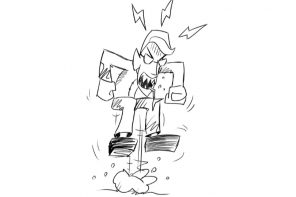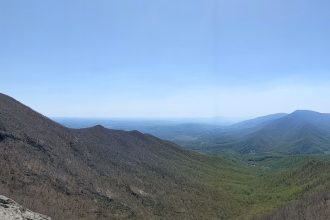It’s easy to look around at the goings on of our current situation world-wide and panic. It’s also easy to say, “I’m not gonna drink the kool aid,” run to Circle K for a Thirstbuster and…..catch the plague. Ok, so it’s not the plague but it’s being presented that way. Don’t misunderstand what I’m saying. This is obviously serious and dangerous. People are dying from this mutated version of this flu-like virus. What I am saying is the hysteria around this situation is unprecedented.
At first I couldn’t understand why. Stay home, wash your hands, social distance and we’ll all be ok. No reason to panic. We aren’t talking about scaling mountains to find an effective containment technique. This is pretty basic stuff. It isn’t the first time we have seen an unbelievably potent version of the flu. Some quick research will tell you that, back in 2009, the Swine Flu infected upwards of 20% of the world’s population and, by some estimates, took nearly 600,000 lives across the world. Those are big numbers. So why is this worse? Let’s set aside the science of what’s going on right now. I know that’s hard to do, but I want to take a look at something outside the virus itself.
My daughter is a sophomore in high school. This social distancing thing doesn’t work for her. She is used to constant contact with her friends and freedom to plan activities on the fly, capture them on her iPhone, and post them to the social media outlet of her choice. Having to stay home and hang out with her parents and her little brother is being tolerated well considering how big a variation from her norm it is. I imagine most parents of high school kids are facing similar situations, attitudes, eyerolls, whatever. Inside we adults are all loving the extra time with these kiddos on the verge of adulthood. These moments are precious to us because they are fleeting. Maybe someday the teens will appreciate the memories as well, but I digress.
Did you know that the kids set to graduate high school this spring were mostly born in the year 2001? Kids born between 2001 and 2005 make up the vast majority of our high school students. Did you also know the iPod was first released in 2001, and the first iPhone was released in 2009, followed in 2010 by the first iPad? MySpace came to be in 2003, Facebook was 2004, Youtube in 2005, and Twitter chirped its first characters in 2006. Why am I telling you this? To highlight that this generation of high school student has never lived in a world where a handheld device has not connected them to the world.
They are bombarded moment by moment with information, misinformation, opinion, acceptance, rejection, and what their best life is supposed to look like, all in a clickbait environment competing for the 3-5 seconds of attention they devote to any one headline before moving on to the next. Since the advent of the smartphone, primarily the iPhone, in 2009, there have been nine 7.0 or greater magnitude earthquakes on record, at least eight hurricanes making landfall and causing major damage, ten terror attacks in the U.S., and eight school shootings. Add to that the chaos in the middle east, like the Arab Spring, the plane crashes, tornadoes, immigration debate, climate change claims, and perhaps the scariest thing of all, the politicians, and you can see how an increase in mental health issues like anxiety and depression are not surprising.
Now I know what you’re thinking. We all are bombarded in the same way, and other generations have faced incredible challenges too. You’re right, of course! Let’s look at how we react. In 2009 there was no panic around the Swine Flu. There was no hoarding. There was no daily press conference or constant Twitter barage. Many of us react to “News” because headlines were important when we were growing up. The news was a source of information we trusted to help us navigate current events. It sort of explains why people are buying out local stores of all kinds of products. Fear is a powerful motivator when dispensed from a source that we grant authority in our life.
But this will be the first generation that didn’t have to seek out news. They are alerted to it moment by moment 24/7, and have been for the majority of their formative years. I wonder what kind of long term impact this is going to have. Will it desensitize them to real danger? Will it leave them in a constant state of anxiety? Will they remember this pandemic as the same kind of world altering event that occurred in September of 2001? Or will they just see the news as chicken little and ignore all the falling bits of blue when it finally happens? One thing is for sure, with the inundation of negative news coverage and the social media spin that accompanies each event, these kids are The Apocalypse Generation.





